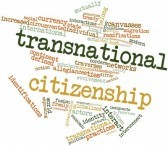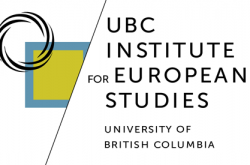The CSSE-CASAE Annual Conference was held in conjunction with the Congress of the Humanities and Social Sciences. This bilingual conference provided an opportunity for discussion of educational issues among practitioners and educational scholars from across the nation. It all took place at the University of Victoria, BC, 1-5 June 2013.
I participated at the conference with my paper Public Legal Education and Information (PLEI) in the Formation of New Citizens in British Columbia, which was part of a panel titled “Migrant subject, local knowledge and the dilemma of social justice”.
Thanks to Allyson Larkin (Western), Chair, and to Handel Wright (UBC) and Michael O’Sullivan (Brock), discussants.
Paper and presenters:
- Governmentality of ‘Settlement’ and the Educational Space for Migrant Children: Marginal Schooling in China’s Megacities – Yao Xiao (University of British Columbia)
- Public Legal Education and Information (PLEI) in the Formation of New Citizens in British Columbia – Angela Contreras-Chavez (University of British Columbia)
- Immigrant teachers, Canadian multiculturalism and conceptions of the “good teacher” – Lilach Marom (University of British Columbia)
- ESL Education as Social In-Justice: Policy Ineffectiveness and its Consequences for Immigrant Children and Youth as Learners in Society – Yvonne Hébert (University of Calgary) and Yan Guo (University of Calgary).
The following is a summary of the panel: focus, concepts and connections — Thanks to Yao for putting it together.
Comparing the Canadian and Chinese contexts, this panel aims to unpack the local knowledge that rationalizes what is ‘right’ and ‘just’ for migrant subjects, and to understand in what ways educational programs and mechanisms have been conducted in responding to such rationalities. With different research methods including policy analysis, ethnographic approach, and critical discourse analysis, the four papers in this panel help spotlight educational spaces where social justice issues are contentious, particularly compounded by the tensions between ‘local knowledge’ – understood as the dominant conceptions of proper settlement in host society, and ‘migrant subjects’ – understood as the prescribed groups of individuals to be governed towards the ends of settlement or only sojourning.
Asking what is ‘right’ and ‘just’ is asking what social justice means. Social justice is the will to render to everyone their due, and Nancy Fraser (2009) argues that “what turns a collection of people into fellow subjects of justice is … their subjection to a structure of governance that sets the ground rules that govern their interaction (p.65)”. However, the structure of governance is not always in consistency, and the ground rules are not always in congruence. This is especially true in migration contexts where the ‘local’ meets the ‘migrants’ in forms of physical and discursive spaces, where a set of prescriptions surfaces on what and how the ‘migrants’ should learn. Local knowledge thus emerge, as the four papers will discuss, in educational forms such as the mechanism of ‘settlement’, the provision of public legal education, the notion of ‘good teacher’, and the English as Second Language (ESL) program. With ‘governmentality’ understood as the will to govern a population based on certain knowledge matrix (Rose, O’Malley, & Valverde, 2006), migrants in this case become subjects of a governmentality based on local knowledge. However, such knowledge involves heterogeneous and often conflictual economic, cultural and political interests, which in turn give rises to the un(desirability) of ‘settlement’ from institutional perspective and the (im)possibility of ‘settlement’ from migrants’ perspective.
This governmentality of settlement has in itself contradictory claims and characters of social justice – contradictions that this panel hopes to highlights and contextualizes. On the one hand, issues of educational resource distribution are compounded by legality concerns. In both urban China and urban Canada, there are cases where permanent labors are economically needed, yet only temporary residents statuses are legally permitted. Such contradictory power politics between economy and legality creates, in the Chinese case presented by Yao Xiao, a very marginalized educational space for migrant workers’ children in urban China. It also creates, in the Canadian case presented by Angela Contreras-Chavez, an ambiguous provision of public legal education and information for workers with precarious migration status. On the other hand, Canada’s educational programs that aim to serve immigrant students better become increasingly entrenched in a set of apparently dominant and assumedly ‘good’ discourses, or what this panel refers to as “local knowledge”. In the case of immigrant teacher recertification programs discussed by Lilach Marom, the notion of ‘good teacher’ – itself remains prototypical ‘west’ and ‘white’ – is embedded in the curriculum as well as the hidden curriculum of recertification programs. Such embeddedness has in turn make difficult the inclusion of immigrant teachers’ ‘indigenous’ knowledge into Canadian classrooms where students’ ethno-cultural backgrounds become increasingly diverse. In the case of English as Second Language (ESL) programs examined by Dr. Yvonne Hébert and Dr. Yan Guo, the typical enrolment of immigrant children in such programs bears much controversy on the students’ emotional wellbeing, learning opportunities and academic attainment – controversy renders ESL questionable as an integrative approach that is socially just for all.
Yao Xiao will be first presenting on migrant children’s marginalized access to and process of urban schooling in two Chinese megacities. The presentation systematically unpacks and problematizes the local mechanisms and knowledge that make educational exclusion possible, based on a critical analysis of government documents and an ethnographic study in migrant communities. The Foucauldian notion of ‘governmentality’, with the notion of ‘settlement’, consist the theoretical lens through which the issues are analyzed and presented. Also contesting the notion of ‘settlement’ but in a Canadian context, Angela Contreras-Chavez will be the second presenter examining how Public Legal Education and Information (PLEI) is linked to the formation of new Canadian citizens. Based on a critical discourse analysis of relevant regulatory and public policy documents, this presentation contributes to Foucauldian oriented debates about legal system, access to public services, and the subjectification of racialized immigrants to dominant ideologies of what constitutes Canadian citizenship. With the questions raised about new citizens, Lilach Marom will be the third presenter examining immigrant teacher recertification programs to unpack the problematic conception of ‘good teacher’, viewed through the theoretical lens of critical multiculturalism. Issues of multiculturalism as related to social justice will then be discussed by Dr. Yvonne Hébert and Dr. Yan Guo, whose presentation critically examines English language policies and in particular ESL programs, involving students, teachers, parents as the ‘who’ of social justice, then goods and services (such as curriculum) as the ‘what’ of social (in)justice and finally pedagogy as the ‘how’ of social justice.
Bibliography
Beynon, J., Ilieva, R., & Dichupa, M. (2004). Re-credentialling experiences of immigrant teachers: Negotiating institutional structures, professional identities and pedagogy. Teachers and Teaching: Theory and Practice, 10(4), 429-444. doi:10.1080/1354060042000224160
Bourdieu, P. (1998). Acts of Resistance. Against the New Myths of Our Time. R. Nice (trans.). Cambridge, UK: Polity Press.
Chassels, C. (2010). Participation of internationally-educated professionals in an initial teacher education bachelor of education degree program: Challenges and supports. Canadian Journal of Educational Administration and Policy, 100; http://umanitoba.ca/publications/cjeap/pdf_files/chassels-iet.pdf
Cho, C. L. (2011). Qualifying as a teacher: Investigating immigrant teacher candidates counter stories of replication and resistance. (Doctoral dissertation). Retrieved from ProQuest Dissertations and Theses. (UMI No. NR80550)
Foucault, M. (2007). Security, territory and population. New York: Palgrave Macmillan.
Fraser, N. (2009). Scales of justice: Reimagining political space in a globalizing world. New York: Columbia University Press (hardback).
Joppke, C. (2005). Exclusion in the Liberal state: The case of immigration and citizenship policy. European Journal of Social Theory, 8(1), 43-61.
Macklin, A. (2007). Who is the citizen’s other? Consider the heft of citizenship. Theoretical Inquiries in Law. 8(2), 333-366.
May, S. (1999). Critical multiculturalism and cultural difference: Avoiding essentialism. In S. May (Ed.), Critical multiculturalism: Rethinking multicultural and antiracist education (pp. 11-42). London, UK: Falmer Press. Ryan, J., Pollock, K., & Antonelli, F. (2009). Teacher diversity in Canada: Leaky pipelines, bottlenecks, and glass ceilings. Canadian Journal of Education, 32(3), 591-617.
Rose, Nikolas, O’Malley, Pat, & Valverde, Mariana. (2006). Governmentality. Annual Review of Law and Social Science, 2(1), 83-104. doi: 10.1146/annurev.lawsocsci.2.081805.105900
Rose, N. (2003). The powers of freedom. Cambridge: Polity
Thobani, S. (2007). Exalted subjects: Studies in the making of race and nation in Canada. Toronto, ON: Toronto University Press.
The conference program is available in PDF format from the CSSE website.



